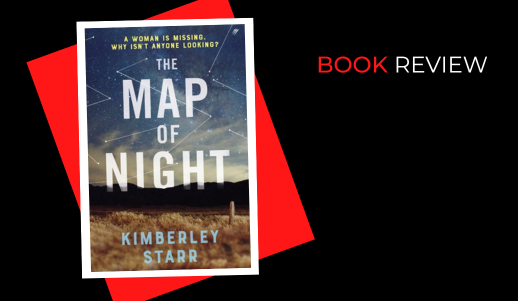By Kimberley Starr
Publisher/Year: Pantera Press 2023
Publisher’s blurb
Astronomer Lucy Rutherford is celebrating the refurbishment of the 100-year-old telescope in the Yarra Valley town of Bowness, Victoria. Her husband, Justin, is running for parliament, on a platform of responsibility and progress.
But Lucy isn’t interested in being a politician’s wife. And after twenty years, she plans to leave Justin. Once he’s won the election. Lucy’s biggest concern is how her eleven-year-old daughter, Gabby, will take the news. Or does Gabby already know? She has a habit of listening in on conversations she shouldn’t.
A week before polling day Lucy takes the family dog for a walk and doesn’t return. Justin is convinced Lucy has left him, but Gabby is certain her mother is missing and in trouble. Why isn’t her father looking?
As the days go by, tensions rise between Gabby and her father. Desperate to contact her mother, Gabby takes matters into her own hands. On the day of the election Bowness is faced with a decision, and so is each member of the Rutherford family.
Reviewer: Christina Lee
Kimberley Starr’s previous novel, Torched, was shortlisted for the Davitts, while an earlier book won the Queensland Premier’s Literary Award. She is an assured writer, and in this novel it is her beautiful, evocative descriptions of the Australian landscape and of the stars above that make the most impact.
In this book, she uses the conventions of the crime novel to write on broad themes, about parenthood, about the place of non-Indigenous Australians in the land, about the mysteries of the night sky. And although there is plenty going on, including several crimes, it is the language in which she explores these themes that shines in this interesting and memorable work.
The novel is set in a country town, not too far from Melbourne. Her two main protagonists, Lucy and Justin, are convincingly portrayed. Neither is ever going to win an award for kindness, but she has drawn two utterly believable and deeply flawed people whose self-absorption and obliviousness to their own faults lead them and their daughter to a crisis. Her depiction of these two is exceptional. Her subtle shifts of point of view, her capacity to show how each of them is convinced that their selfish behaviour is in the best interests of others, and entirely the moral thing to do, is a masterclass in characterisation. The best novels make the reader reflect on her own life, and I found myself wondering how much selfish rationalisation might drive some of my own choices, and those of others.
Lucy, the central character, is an astronomer concerned entirely with her career. Her self-absorption shows itself in a tendency to go off for days on end without warning to spend her nights stargazing and her days asleep. She’s accepted a job in far-off Parkes but neglected to discuss it with her semi-estranged husband or their pre-teen daughter, who she assumes will come with her. It doesn’t occur to her that her daughter might have an opinion on what future she wants when her parents, inevitably, separate. Nor has she considered what life might be like for a socially inept eleven-year-old with a learning disability and a stutter, at a new school in a new town, with a single parent who works all night and sleeps all day. Other people don’t really exist for Lucy.
Quite early in the novel, she falls down a mine shaft and spends most of the book down a deep hole, a fine metaphor for her inability to connect. Some of the most beautiful and evocative passages record the images and memories that come to her in her semi-delirium, looking up from the heart of the earth to the stars above. But you can’t stay down a mine shaft for ever.
Unfortunately, Lucy is married to Justin, whose own self-admiration is even more damaging. During the gold rush, his ancestors took all the land that the town stands on from its Indigenous custodians, and his family name used to be very important. Until his father lost all their money and land in a disastrous business venture, ruining many other families in the process. Now Justin wants the status and the money back. He is secretly using his and Lucy’s money to buy up whatever land is available, with a plan to make huge profits from shopping malls and housing estates and so forth. He hasn’t discussed this with her, any more than she has mentioned her plans to him. In common with his wife, Justin really doesn’t care about anybody else. He has already, secretly, mortgaged everything they own several times over to pay for further acquisitions. Then he discovers that he can’t get planning permission.
His solution to this problem is to stand for state parliament, imagining that, as a junior opposition backbencher (he’s standing for the Liberals in Victoria) with no political background, he will somehow be able to change the state land use laws to benefit himself. As a bail-out plan it’s clearly doomed to failure.
But with the election at the end of the week, he hasn’t got time for a missing wife, and takes increasingly dangerous, illegal and harmful steps to convince everyone else that she’s still around and all is well.
It ends badly for at least one character, but I won’t give any more away. You’ll have to read the novel yourself and find out. I’m sure you’ll enjoy it.
